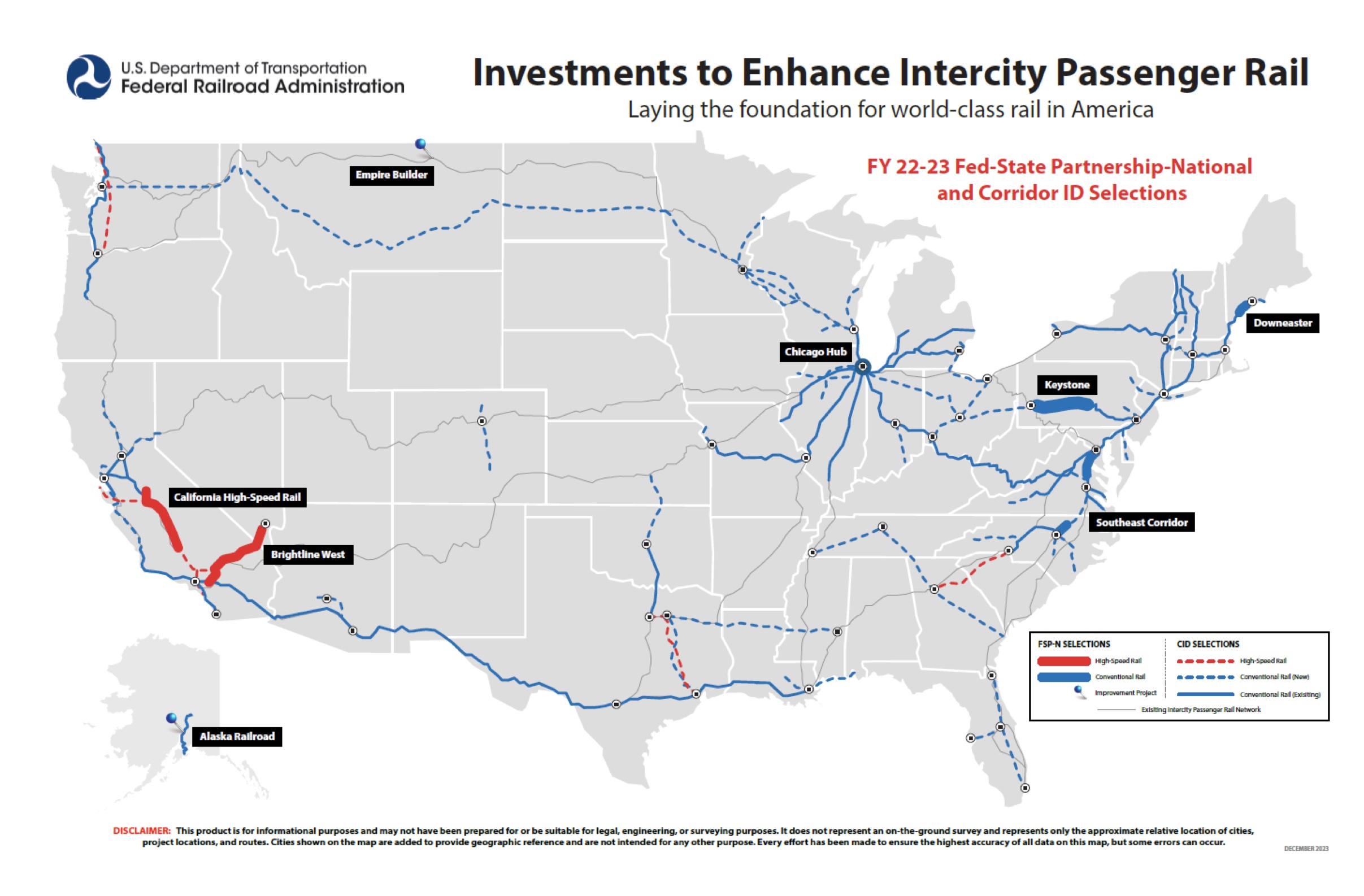High-Speed Rail Between Charlotte and Atlanta with Proposed Stop in Greenville Gains Momentum with New White House Funding
December 10, 2023In a significant development for the proposed high-speed rail between Charlotte and Atlanta, the project has secured a crucial boost with $500,000 in funding from the Corridor Identification and Development Program, courtesy of The White House. This funding injection will facilitate the ongoing examination and consideration of potential routes, with a particular focus on the Greenfield Corridor.
The Corridor Identification and Development Program, allocating a total of $34.5 million to 69 railroad projects across 44 states, aims to lay the groundwork for future high-speed railway investments. The Charlotte-Atlanta project, a vital link in this nationwide initiative, is set to benefit substantially from this program.
Originally presented with three potential routes in 2019, project planners have now narrowed down their options to a single preferred route—the Greenfield Corridor. This decision marks a crucial milestone in the advancement of the high-speed rail project.

The proposed 274-mile route holds the promise of transforming regional connectivity, with key features including:
- Connectivity: The high-speed rail would seamlessly connect the Charlotte Gateway Station to Hartsfield-Jackson International Airport, significantly enhancing accessibility between two major economic hubs.
- Strategic Stops: The project includes a stop at Greenville-Spartanburg International Airport, fostering regional integration and accessibility.
- Reduced Travel Time: Depending on the type of train used, the estimated travel time between Charlotte and Atlanta would be approximately 2 hours and 6 minutes for an electric train and 2 hours and 44 minutes for a diesel train. This reduction in travel time holds the potential to revolutionize inter-city transportation and bolster economic ties between the two cities.
- Financial Implications: The estimated cost of implementing the high-speed rail project ranges from $6.2 to $8.4 billion, based on 2019 figures. While a substantial investment, proponents argue that the long-term benefits, including enhanced connectivity and economic growth, justify the financial commitment.
The infusion of $500,000 from The White House comes at a critical juncture, allowing planners to delve deeper into the environmental, logistical, and economic aspects of the Greenfield Corridor. The funding will enable a comprehensive study that takes into account the various intricacies involved in executing a project of this magnitude.



















